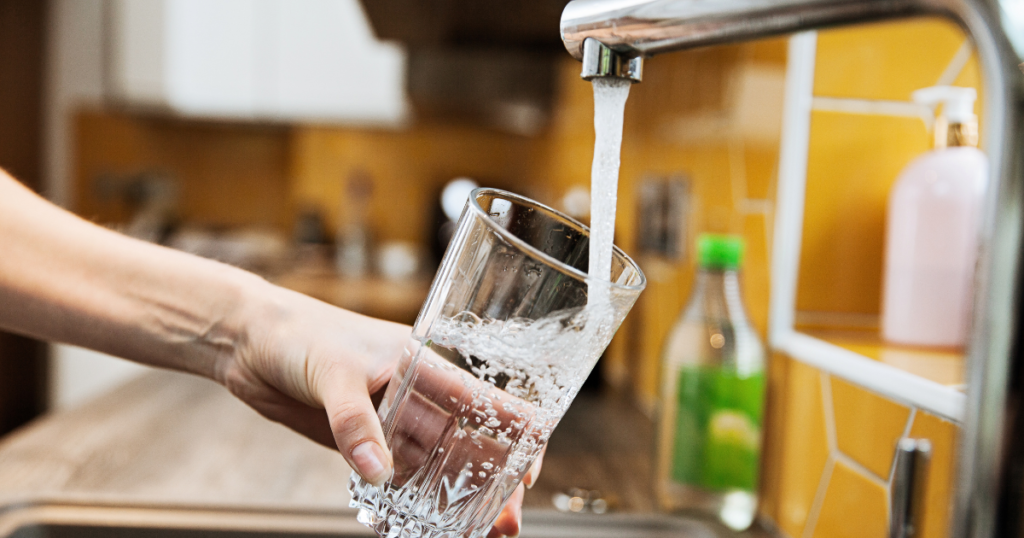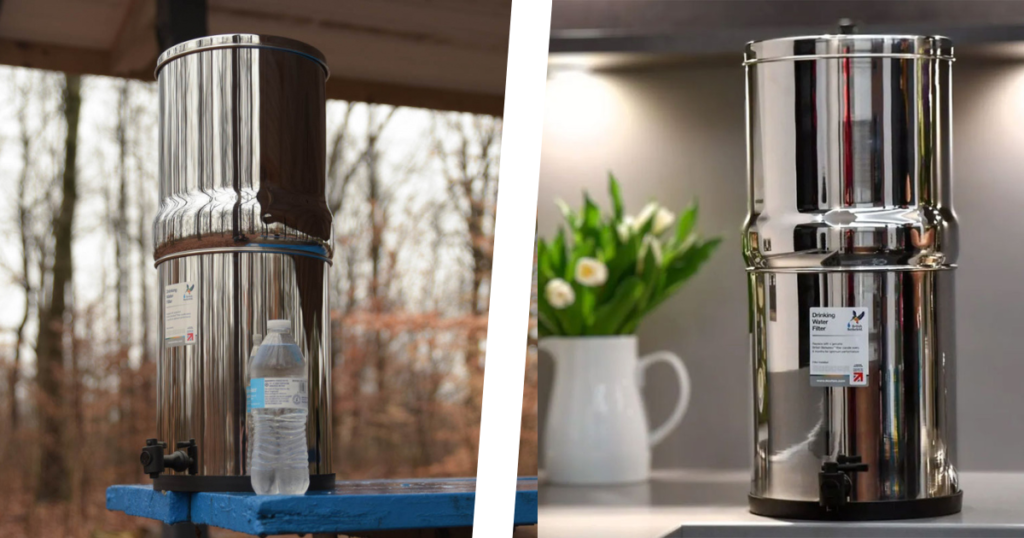May brings two significant occasions: Drinking Water Week and Mother’s Day! Drinking Water Week falls on the first full week of May, from May 5 to 11 this year and Mother’s Day is the day after this year on May 12. So, how are these two events related? We’ve got the answer, and it might just lead you to the perfect gift idea for Mother’s Day.
What is Drinking Water Week?
Before going into this topic deeper, let’s clarify what Drinking Water Week is about. Sponsored by the American Water Works Association, it’s a time to acknowledge the crucial role that drinking water plays in our everyday lives. Water is a staple of our hydration routine, but have you ever wondered where your tap water comes from? Is it safe to drink? Drinking Water Week raises these questions, spreading awareness about the importance of safe drinking water.

Forever Chemicals in Tap Water and Your Health
We’ve been discussing the safety of our drinking water, and by this we mean forever chemicals, officially known as PFAS. These toxic chemicals are everywhere around us, including in the water we drink from our taps. What makes them alarming is their resistance to elements like water, grease, and heat. Once they find their way into the environment, they persist for long periods and degrade very slowly over time.
A study carried out by The United States Geological Survey (USGS) tested select tap water directly from people’s kitchen sinks, both private wells and public supplies, across the country, and found PFAS present nationwide. The report revealed that “At least 45% of the nation’s tap water is estimated to have one or more types of the chemicals known as per- and polyfluorinated alkyl substances, or PFAS.” The research
While the study did find that PFAS weren’t present in all tested locations, it’s crucial not to assume your tap water is entirely safe. PFAS pose significant health risks. According to the United States Environmental Protection Agency (EPA), certain levels of PFAS have been associated with health concerns like reproductive issues, increased risk of some cancers, affecting the body’s immune system, and more.
The Solution? British Berkefeld Gravity Water Filter Systems. The Perfect Mother’s Day Gift

Time to bring the focus back to moms! A brilliant way to celebrate Drinking Water Week and to also show your mom some love this Mother’s Day is by giving her access to fresh, clean, refreshing water that is free from harmful chemicals…and yes! It is possible with the help of gravity filters.
At Discount Filters, our British Berkefeld Gravity Water Filter Systems are built to last, made from high quality stainless steel. Moms will love how easy they are to set up – no complicated installation required! Plus, these systems filter out common contaminants like sediment, bacteria, chlorine, heavy metals, microplastics and the previously mentioned forever PFAS. The British Berkefeld systems accommodate 2, 3, or 4 ceramic filter candles. These filter candles are essential for removing impurities, keeping the ceramic element clean, getting rid of chlorine and organics for better-tasting water, and reducing toxic lead with specialized heavy metal reduction media.
As you can see, the British Berkefeld Gravity Water Filter System offers numerous benefits. Here are just a few more ways in which these benefits can be particularly helpful for moms:
User-friendly design
Its user-friendly design makes installation a breeze. The system works by harnessing gravity to slowly filter water through different chambers filled with filter media. This simple maintenance setup is a big plus for busy moms who want an easy-to-install water filtration system.
A cost-effective solution
While the upfront cost of our British Berkefeld Gravity Water Filter System might seem a bit high, its value for your family’s health and finances is truly unmatched. It eliminates the need for electricity, which can lead to savings on utility bills! For moms focused on long-term savings and peace of mind, investing in a gravity water filtration system like this one is a wise choice.
Compact and versatile
The British Berkefeld Gravity Water Filter System is portable and lightweight, making it perfect for moms who enjoy camping, road trips, or want to be prepared for emergencies with their family. It provides a reliable source of clean water, even in places without power.
Effectively filters toxic chemicals
Although it’s been mentioned a few times already about its effectiveness in removing toxic chemicals from drinking water, we want to emphasize it again! Moms prioritize keeping their families safe, and gravity water filter systems like this one are excellent for filtering harmful chemicals in drinking water. They remove a range of forever chemicals and other contaminants like fluoride, chlorine, bacteria, lead, and more, ensuring your drinking water stays clean and healthy.
Other Frequently Asked Questions
How often should I change my gravity water filter?
While the lifespan of the cartridge depends on factors such as your water conditions, the volume of water filtered, and how often you clean it, gravity water filters are typically replaced every 6 to 12 months.
How do you clean a gravity water filter?
Most people clean their gravity water filters monthly with a clean sponge. To clean it, hold the filter by its base and run the ceramic portion under cool water for two minutes. Next, scrub the ceramic material with the abrasive side of the sponge, and then rinse.
How long do gravity water filter systems take?
The time it takes for a gravity water filter system to purify water depends on the model of the filter, the level of filtration required, and the condition of the water. Always refer to the manufacturer’s instructions to understand the recommended filtration time.
How does a gravity water filtration system work?
With just the force of gravity at work, the water moves through the filtration system. It starts in the upper chamber, where a filter element removes impurities. From there, it flows down to the lower chamber, providing clean water in the end.

